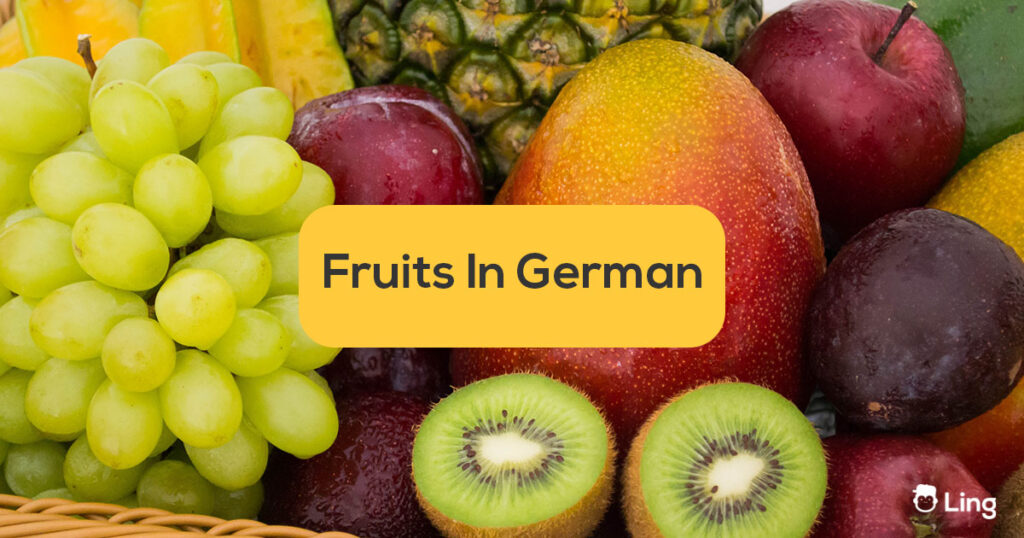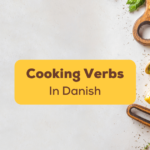Do you have a sweet tooth? Are you craving a sweet and juicy treat? If you’re a German learner looking for a snack or treat to bite while studying the language, obst (fruit) is a great option. After all, fruits are called nature’s candy and are the perfect healthy alternative to those tempting artificial sweets. And speaking of tempting, would you dare to name your favorite fruit in German? If you are feeling a little hesitant, there is no need to back up! In today’s article, we’ll cover the different types of fruits in German and how you can get your delicious fruity treat while getting nourished in the language.
Das Obst In Germany
Germany is known for its beer, bread, and sausages. However, Germans love fruit, too. In fact, the Federal Office for Food and Agriculture confirms that Germans consume about 69.5 kg of fruit per year per person! That’s why there’s no surprise that the supermarkets in this country have varieties of fruits available all year round! Another thing that caught my attention is the diversity of fruit desserts that exist here. Therefore, if you are a fruit and dessert lover, you will find the perfect combination in Germany.
So, for you to enjoy these delicious benefits, let’s look at some of the most popular fruits in Germany and how to name them.
Popular Fruits In German
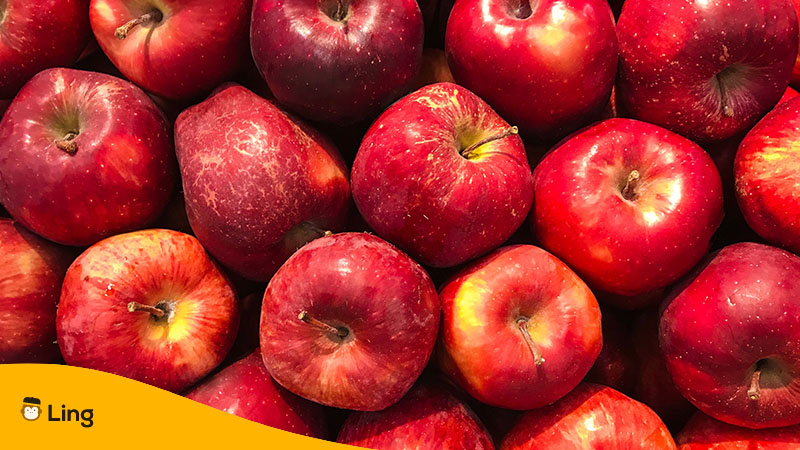
Apple – Der Apfel
The apple is one of the most popular fruits in Germany. There are several types, and their refreshing taste can vary between sour and sweet.
Plural: die Äpfel
Example: Die roten Äpfel = The red apples.
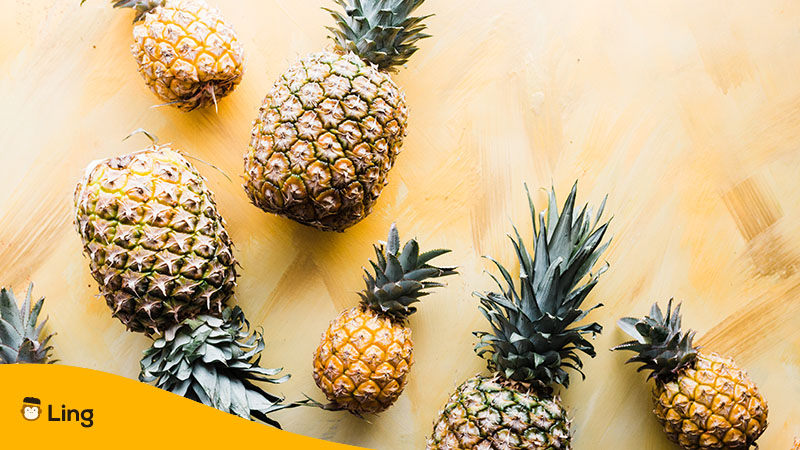
Pineapple – Die Ananas
Pineapple is a very popular tropical fruit in Caribbean countries since it is usually grown in warm climates. However, it can be found regularly in some German supermarkets.
Plural: die Ananasse
Example: Die Ananas ist süß = The pineapple is sweet.
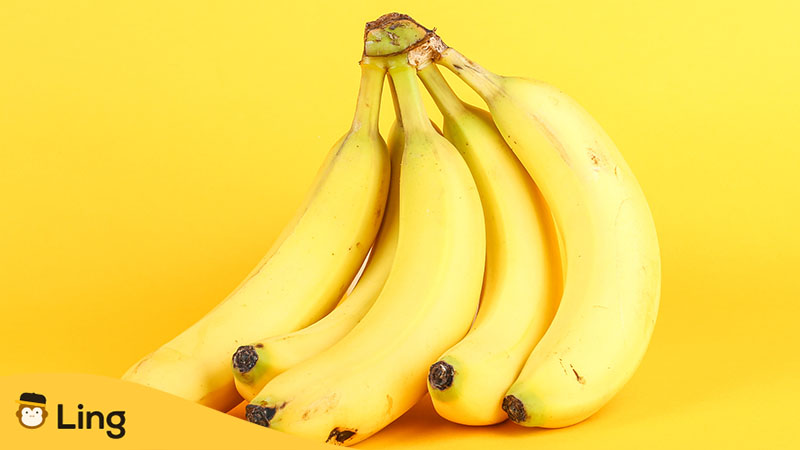
Banana – Die Banane
The banana is a type of fruit that grows in tropical climates. Even though it is not produced in Germany, it is widely consumed due to its nutrients and long shelf life.
Plural: die Bananen
Example: Die Bananen sind gelb =The bananas are yellow.
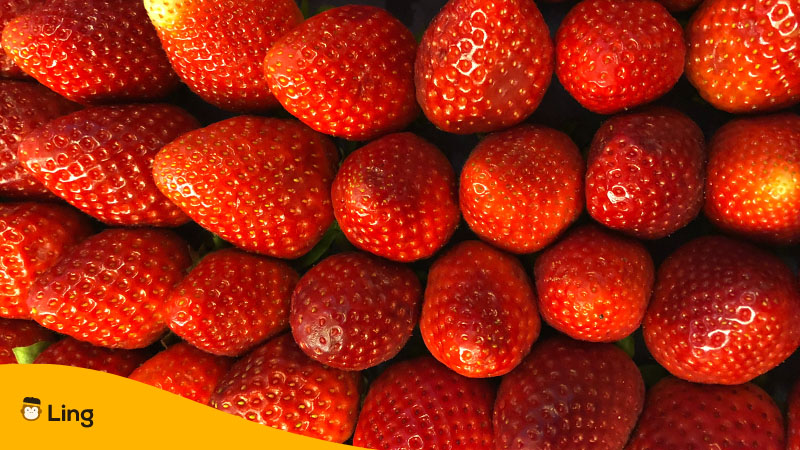
Strawberry – Die Erdbeere
Germany has some of the sweetest strawberries I have ever eaten. This is just one of the extensive selections of berries that can be found here.
Plural: die Erdbeeren
Example: Die Erdbeeren schmecken köstlich = The strawberries taste delicious.
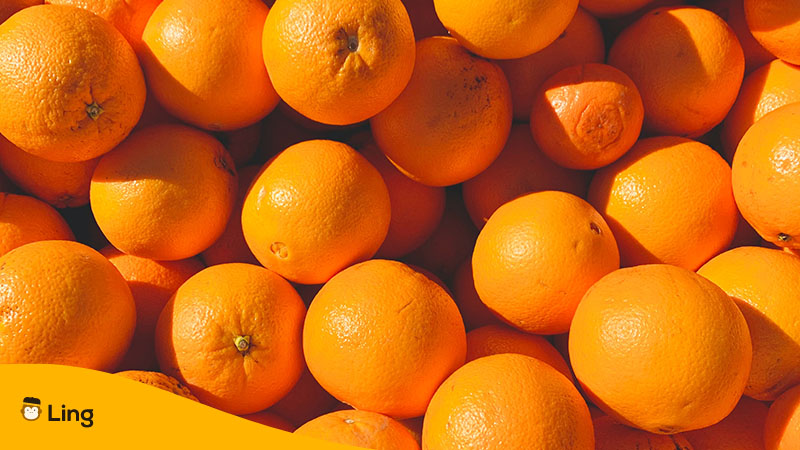
Orange = Die Orange
Orange is my favorite fruit. If I could, I would drink orange juice every day of the week, and apparently, Germans like it, too. I prefer it natural, but many brands sell cold pressed orange juice in supermarkets which is an option when you have no other choice.
Plural: die Orangen
Example: Ich liebe Orangensaft = I love orange juice.
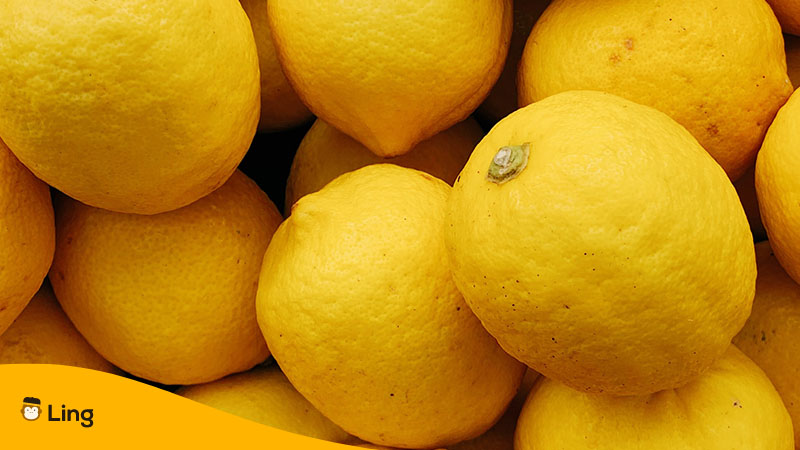
Lemon – Die Zitrone
This citrus fruit is more prevalent in some seasons than others. Even so, it is easy to find in Germany.
Plural: die Zitronen
Example: Die Zitronen sind sauer = The lemons are sour.
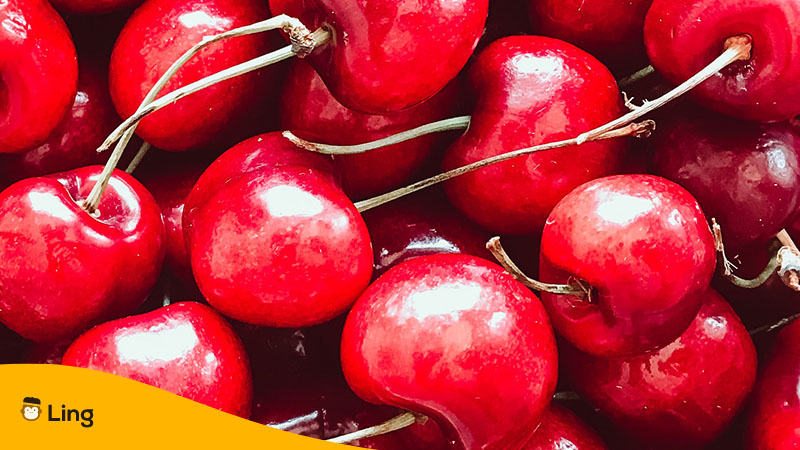
Cherry – Die Kirsche
Among the most popular fruits in Germany are cherries, especially sweet cherries.
Plural: die Kirschen
Example: Die Kirschen sind reif = The cherries are ripe.
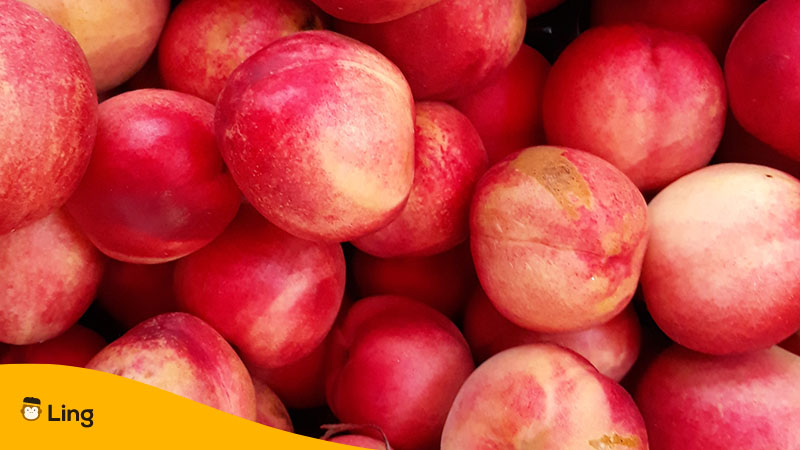
Peach – Die Pfirsich
Peaches are another type of fruit that grows in warm climates. Because of that, most of the peaches consumed in Germany come from Italy or Spain.
Plural: die Pfirsiche
Example: Die Pfirsiche sind saftig = The peaches are juicy.
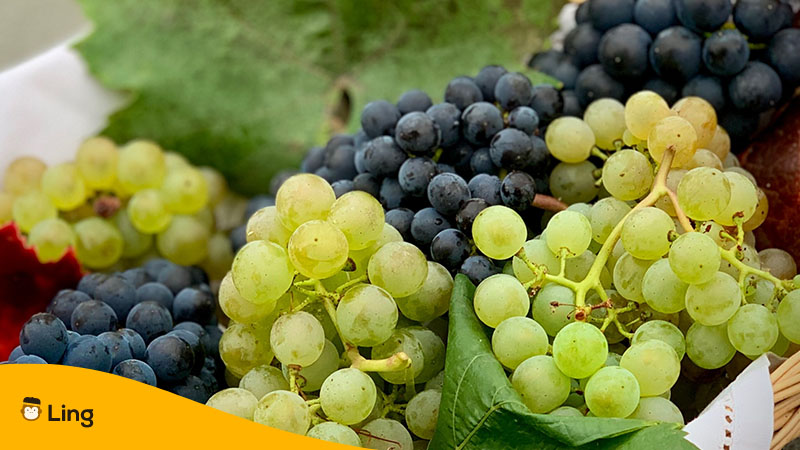
Grape – Die Traube
Grapes may be the favorite fruit of wine lovers. In Germany, one of the most important grapes is the Riesling since it’s very popular for winemaking.
Plural: die Trauben
Example: Die Trauben sind gequetscht = The grapes are bruised.
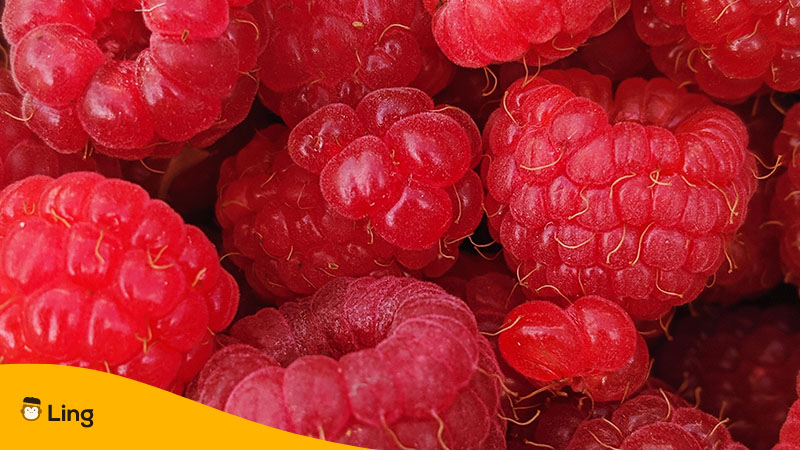
Raspberry – Die Himbeere
Himbeere is a fruit with a high amount of vitamin C, manganese, and fiber. It is an excellent choice as a snack while studying.
Plural: die Himbeeren
Example: Ich möchte ein Himbeereis = I would like a raspberry ice cream.
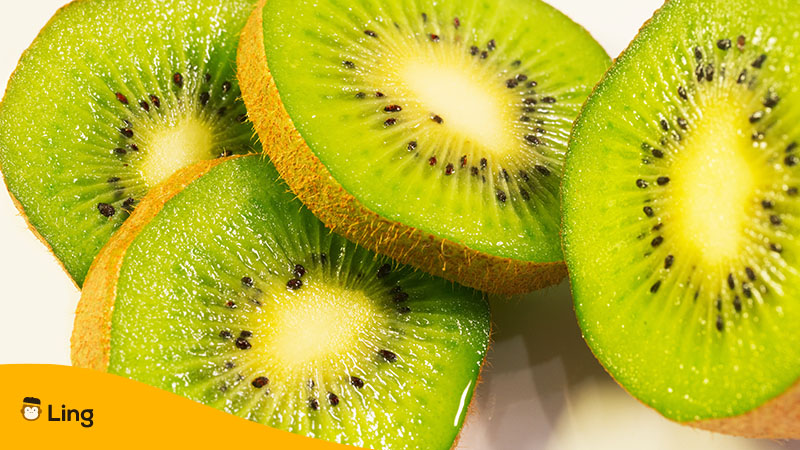
Kiwi – Die Kiwi
In German supermarkets, you’ll find numerous natural juices and smoothies that contain kiwifruit as the main ingredient.
Plural: die Kiwis
Example: Es gibt keine kiwi im Supermarkt = There is no kiwi in the supermarket.
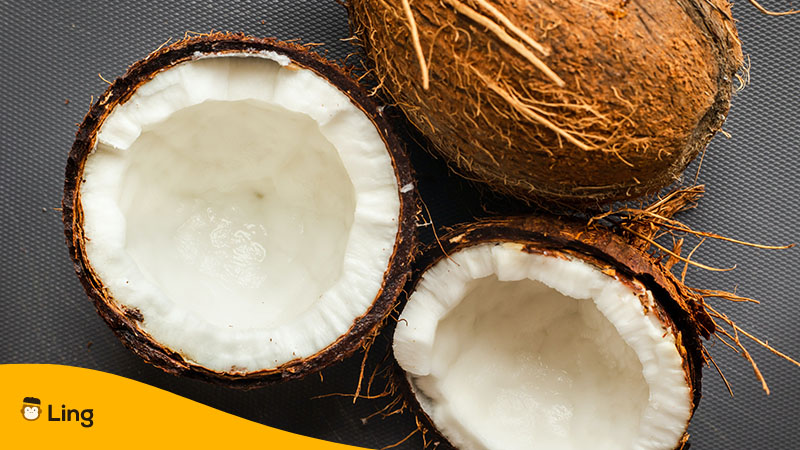
Coconut – Die Kokosnuss
It is a tropical fruit that is hard to find in Germany. Although it is not impossible, it is not available in every supermarket.
Plural: die Kokosnüsse
Example: Das Kokosnusswasser ist erfrischend = The coconut water is refreshing.
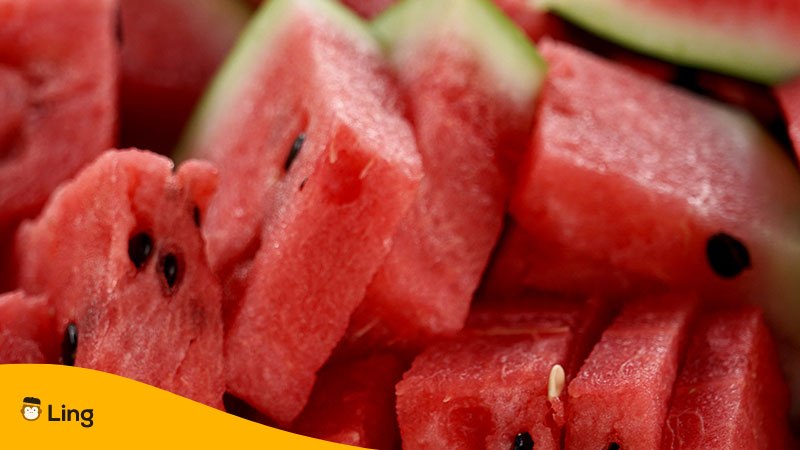
Watermelon – Die Wassermelone
Plural: die Wassermelonen
Example: Diese Wassermelone hat keinen Geschmack = This watermelon has no taste.
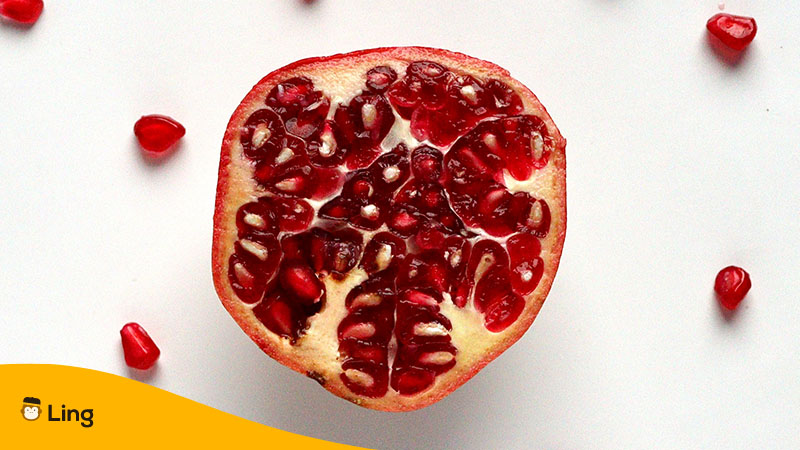
Pomegranate – Die Granatapfel
Plural: die Granatäpfel
Example: Ich mag keinen Granatapfelsaft = I don’t like pomegranate juice.
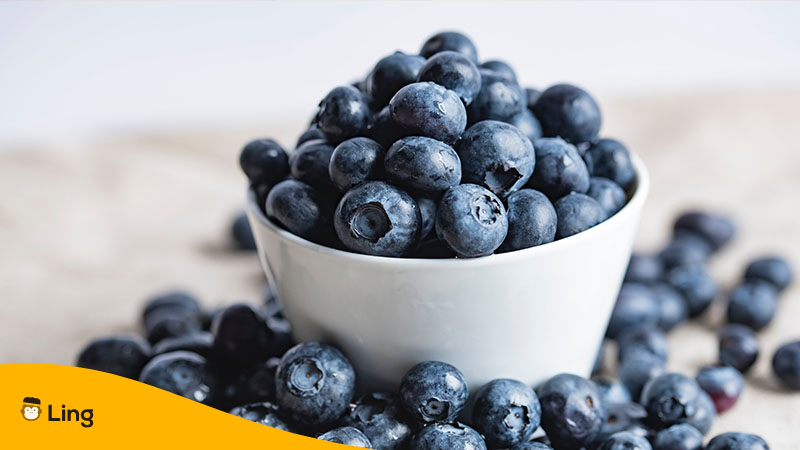
Blueberry – Die Blaubeere
Plural: die Blaubeeren
Example: Meine Mutter mag Blaubeeren = My mother likes blueberries.
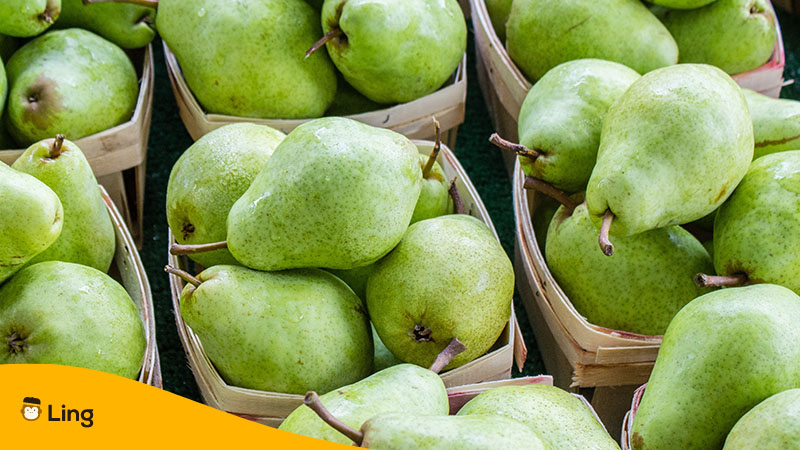
Pear – Die Birne
Plural: die Birnen
Example: Die Birne ist weich = The pear is soft.
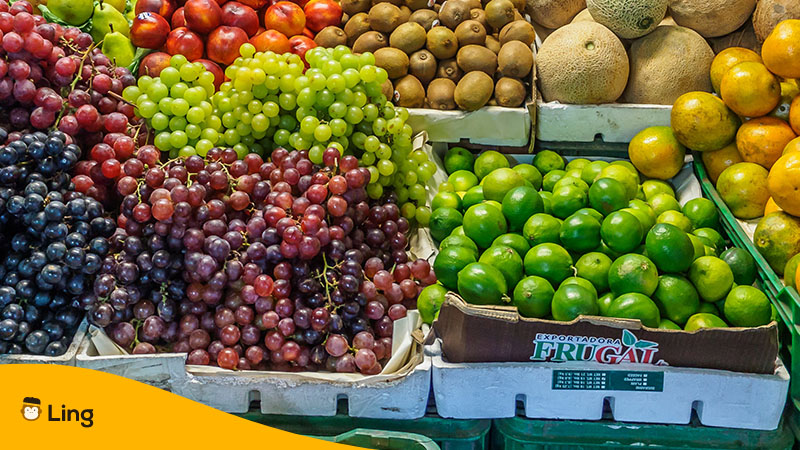
How To Shop For Fruit In Germany?
If you want to order fruits in German, these two phrases will be beneficial: “Ich möchte~” and “Ich hätte gern~” both mean “I would like.”
Choose one of these phrases and add the number or the weight (“Gramm” or Kilo”) of the fruit you want to buy.
Examples:
- Ich möchte 3 Orangen, bitter = I would like 3 oranges, please.
- Ich hätte gern 300 gramm Pistazien, bitter = I would like 300 grams of pistachios, please.
There you go! Now you have everything you need to get your tasty snack in Germany.
Want To Boost Your Skills In German?

Do you want to improve your speaking skills? Ling offers a series of learning games where you can exercise your German pronunciation. By signing up for an account, you can find interactive activities made in collaboration with native German speakers that will help you improve your pronunciation significantly. You will also receive instant feedback, so you get better in each lesson. And the best part is that you don’t have to wait!
You can download Ling right now for free! Go to the App Store or Play Store and start your German journey today!
Tschüss!
